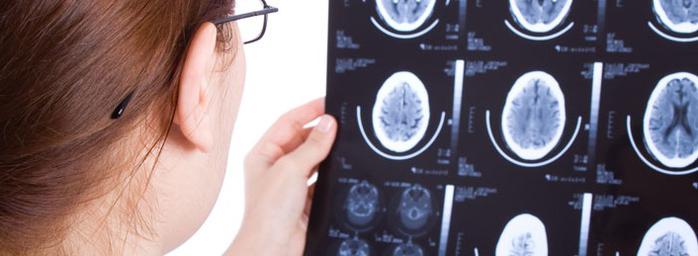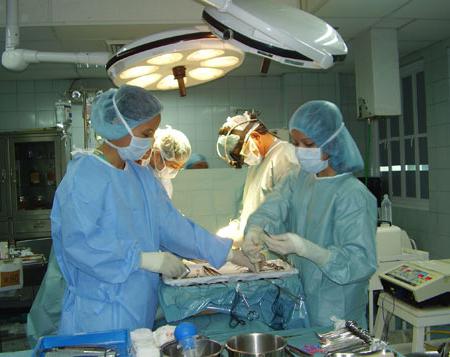City Hospital 23 is a multidisciplinary medical institution that provides diagnostic, preventive and therapeutic services to the population. Today it is located in 11 buildings, and 16 main departments are classified according to 10 profiles: general and purulent surgery, rheumatology, neurology, therapy, gynecology, thoracic surgery, pulmonology, rheumatology, cardiology. In addition, 23 hospitals have fourteen support services and departments, laboratories, business and administrative units. The pride of the medical institution is its staff: doctors of the highest and first category, doctors of medical sciences and professors, academicians. Nursing staff meets all the requirements of the Moscow Department of Health.
Hospital History
In the pre-revolutionary period, 23 city hospital (Moscow) was the Yauz branch for unskilled workers. The building in which it is located now is an architectural monument: earlier it was the estate of the Batashev family. In the post-revolutionary period, the medical institution was called "Medsentrud", well-known professors appeared in its staff, and it gained the status of a base for therapeutic and surgical clinics of medical institutes. The therapeutic clinic worked under the guidance of Professor V. Kukes. It was here that chronic diseases of the liver, cardiovascular system, gastrointestinal tract and lungs were studied, and work in the field of pharmacology was also improved. The surgical clinic dealt with the problems of general and purulent surgery, pathologies of the lungs, liver, biliary system, as well as issues of resuscitation and anesthesia. In the early 80s, another therapeutic clinic began to work at the hospital, under the guidance of academician and professor V.A. Galkin, which deals with the state of the liver and gall bladder. And the year 1994 was marked by the opening of the Department of Therapy, the main focus of which was the study of unstable angina, acute myocardial infarction and thrombophilia.

Scientific base
Throughout its existence, hospital 23 on Taganka has been a training base for medical schools (MU No. 2 named after Klara Zetkin, MU No. 7). Today it is the base for the Moscow Medical Academy. Sechenova I. M., namely, collaborates with the departments of propaedeutics and clinical pharmacology, therapy and general surgery. On the basis of cooperation, research is being conducted on the testing of drugs and medical equipment, the introduction of innovative methods of treatment, prevention and diagnosis of diseases, as well as advanced training for doctors, nurses and nurses.
Reception Office
How does the 23 hospital take? The registry is open daily and keeps a record of citizens with specialists on Monday-Friday and the first half of Saturday. Patients brought to the emergency room by the ambulance team are admitted in the order
emergency medical care. They provide an examination of doctors on duty at the admission department and additional consultations by specialists from other departments (if necessary). Also, patients undergo an emergency diagnostic examination (ultrasound of the internal organs, X-ray, ECG, etc.), clinical and biochemical analyzes of biological fluids. The admission department distributes patients into departments.
Diagnostic base
23 hospital has a fairly developed diagnostic base. Today, the medical institution provides free and paid diagnostic services to the population in five departments:
- The Department of Functional Diagnostics examines individual vital organs and systems, determining the level of their functionality. The medical staff uses both classical and newer methods: echocardiography, echoencephalography, electroencephalography, rheoencephalography. Thanks to these diagnostic methods, the severity of the disease is established, and further treatment is prescribed.
- The department of ultrasound diagnostics has all the necessary equipment for identifying pathologies in the early stages. It is worth noting that ultrasound of internal organs is carried out by specialists with appropriate education and work experience.
- The department of radionuclide diagnostics examines organs and systems using radiopharmaceuticals based on radionuclides. 23 hospitals carry out research using topographic gamma cameras, ultrasound machines.
- The Department of Clinical and Biochemical Diagnostics is engaged in the study of blood, urine and other biological materials for any deviations from the established norms.
- The department of bacteriological diagnostics is engaged in the study of sputum, which allows to identify inflammatory processes, etc., caused by bacteria and pathogens.
Thanks to such a wide range of diagnostic techniques, the 23rd hospital reveals in the early stages of pathology of the cardiovascular and endocrine system, gastrointestinal tract, bronchi, lungs and musculoskeletal system.
Therapeutic department
Therapy is one of the leading areas of the medical institution. City Hospital 23 has six therapeutic departments, two of which are general-purpose and four are highly specialized:
- The 1st therapeutic department (rheumatology) specializes in the study, diagnosis, prevention and treatment of degenerative-dystrophic and inflammatory diseases of the joints, systemic diseases of the connective tissues. To date, hospital doctors have successfully treated diseases such as rheumatoid and gouty arthritis, vasculitis, osteoporosis, bursitis, rheumatism, ankylosing spondylitis, Raynaud's phenomenon and many others.
- The 2nd therapeutic department (emergency cardiology) specializes in therapeutic and diagnostic measures for patients admitted to the hospital with unstable angina, hypertensive crises with complications, cardiac asthma, acute cardiac arrhythmias and conduction, inflammatory heart diseases. The department works around the clock, taking planned and emergency patients.
- The 3rd therapeutic department (cardiology) offers a unique “ECG by phone” service. A small and easy-to-use device that can be rented takes an ECG at home. According to these data, the patient can receive consultation of the doctor of the department by telephone. In the usual working order, the department deals with patients suffering from heart diseases of varying severity.
- The 5th therapeutic department (pulmonology) is engaged in the diagnosis and treatment of diseases of the bronchi, lungs, and upper respiratory tract. The list of diseases that the department staff deals with includes asthma, pneumonia, emphysema, and respiratory infections.
- The 10th and 11th therapeutic departments are considered common.

Surgery
23 Clinical Hospital has four surgical departments: male, female, thoracic and purulent surgery, which carry out treatment by surgery, as well as using laparoscopic surgery.
- The Department of Purulent Surgery specializes in providing medical care to patients suffering from various forms of purulent surgical infections. Hospital 23 (Moscow) for many years successfully conducts operations for purulent inflammatory diseases of the skin and soft tissues, cellular tissue, cysts, gangrene, purulent arthritis and mastitis, thermal lesions, suppuration of postoperative wounds, etc.
- The Department of Thoracic Surgery assists patients with injuries of the chest, as well as organs of the chest cavity and neck, with pathologies of the diaphragm, diseases of the lungs and pleura.
Neurology
The 8th neurological department deals with patients with diseases of the central and peripheral nervous system. The list of major diseases includes asthenia, bulimia, insomnia, neuralgia, migraine, neurosis, neuritis and others. The treatment uses an integrated approach (medication and physiotherapy), sometimes surgical intervention is required.
Gynecology
Hospital 23 makes a huge contribution to the treatment of the female half of the population. Reviews of specialists and their work once again prove that the main goal of the department is gentle methods and preservation of the reproductive function of patients. Today, the department successfully treats inflammatory processes in the uterus and appendages, pathologies of the cervix, myoma, amenorrhea and other diseases.
Department of Radiology
Separately, it is worth highlighting the radiology of 23 hospitals. Thanks to highly qualified personnel and modern equipment, this department provides the following services on a free and commercial basis to the population:
- X-ray and radiography of the organs of the chest cavity and gastrointestinal tract.
- The study of the large intestine - irrigoscopy.
- Survey and intravenous urography.
- X-ray images of the bones of the skull, sinuses, Turkish saddle.
- X-ray images of the skeletal system of the body, including the spine, under the influence of loads.
- The study of the bile ducts.
- Cholangiofistulography.
Endoscopic department
Endoscopy is one of the methods of diagnosis and treatment of internal hollow organs. The department works closely with other structural units of the hospital: gynecology, pulmonology, and surgery. The endoscopy procedure is carried out by experienced doctors using a special device (endoscope) equipped with a fiber optic system. Endoscopes are also used for surgical interventions, which are carried out through small incisions or punctures.
Department of Anesthesiology and Resuscitation
The department deals with patients who underwent surgery under general anesthesia. In this case, the main task of the medical staff is to constantly monitor the patient until recovery. The department also accepts patients admitted to the hospital on an emergency basis, for example, with impaired functioning of vital organs, systems requiring urgent infusion therapy. Cardioreanimation, which is part of the unit, deals with patients with acute myocardial infarction, unstable angina pectoris, thromboembolism, conduction and rhythm disturbances. Specialists of the department carry out:
- Coronary angiography - a radiopaque study of coronary vessels. This procedure allows you to identify the site of narrowing of the artery that feeds the heart, to determine the degree and nature of the pathology.
- Angioplasty of the blood vessels of the heart - a procedure aimed at changing and restoring the shape and plasticity of blood vessels, increasing their performance. The main indicators for conducting are peripheral vascular disease, coronary heart disease, etc.
Department of Pulmonology
For several decades, the Department of Pulmonology has been engaged in the diagnosis and treatment of a variety of diseases of the respiratory system. Among these diseases, there are also quite rare. The department is engaged in the development and implementation of programs for the treatment of chronic obstructive pulmonary diseases, severe forms of bronchial asthma, pneumonia, fibrosis, sarcoidosis, bronchitis, pleurisy, pulmonary hemorrhages and other pathologies.
Hospital
City Hospital 23 (the official website of the medical institution - www. mosgorzdrav. Ru / gkb23) offers several treatment options:
- Full hospital - for patients whose stay and treatment require constant monitoring. The department operates around the clock, designed for 650 beds.
- Day hospital - for patients who, after procedures and examinations, do not need constant monitoring. The department is open from 9:00 to 16:00. At this time, patients can undergo an instrumental examination, medication and physiotherapy, ultrasound, X-ray and other procedures indicated in the appointment sheet.
The coordinates of the medical institution 23 hospital
Phones:
- Information: 8 (495) 915-38-47.
- Reception Department: 8 (495) 915-38-51
Address:
- Moscow, st. Yauzskaya, 11.